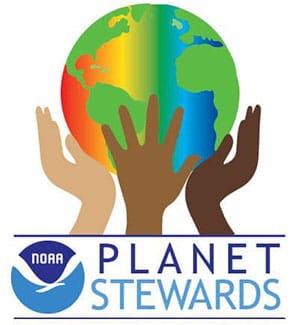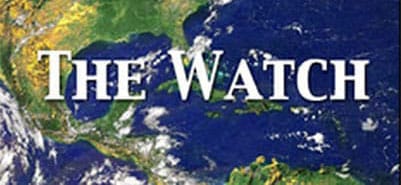Climate Change and Marine Fisheries
NOAA’s National Marine Fisheries Service (NOAA Fisheries) is responsible for stewardship of the nation’s ocean resources. These include fisheries species (e.g. Atlantic Sea Scallops, Walleye Pollock), protected species (e.g., Atlantic Salmon, Hawaiian Monk Seal), and habitats (e.g., Deep-sea Corals). Climate change and decadal variability have affected marine resources in the past and will continue to affect these resources into the future. Climate change is a long-term (>50 years) change in the climate system and evidence shows that recent climate change is caused by human activities. Climate variability is a natural component of the climate system and occurs over a range of time scales (years to decades). Populations can respond to climate change and climate variability in several manners: 1) the productivity of the population can change; 2) individuals can move; 3) populations can shift their distribution over generations; and 4) populations can adapt or acclimate. These biological responses create significant challenges for the management of marine resources and for the human communities that depend on these resources. This presentation discusses the aforementioned as well as the tools and approaches NOAA Fisheries is pursuing to help the management of marine resources adapt to climate change.

Jon Hare
At the time of this broadcast Dr. Jonathan Hare was director of NOAA’s National Marine Fisheries Service Narragansett Laboratory and Acting Chief of the Northeast Fisheries Science Center Ecosystems Processes Division. He oversaw ecosystem, climate, and ecology research used to improve assessments and management of marine resources. Jon earned a BA in Biology from Wesleyan University and a PhD in Oceanography from SUNY Stony Brook. He received a National Research Council Research Associate in 1994 to work at the NOAA Beaufort Laboratory and began working for NOAA in 1997. Jon moved to the NOAA Narragansett Laboratory in 2005. His research has focused on fisheries oceanography: understanding the interactions between the ocean environment and fisheries populations with an aim of contributing to assessments and management. Jon has also examined the effect of climate change on fish and invertebrate population dynamics. This work involves coupling the output of global climate models with population models to simulate the effects of climate change on population dynamics.
Additional Resources
NOAA National Marine Fisheries Information on Climate Change
National Climate Assessment – Fisheries Related Information
Ocean Acidification: Hands-On Activities for Students
A Big Change: Climate and Fisheries. An Oregon Sea Grant Documentary

Education
Stewardship

Subscribe to the NOAA Planet Stewards Mailing List. View our archive of past newsletters.
Social